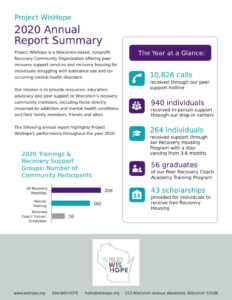Reading an article or watching an empowering recovery video can elevate one’s mood and efforts to fortify recovery commitments—at least momentarily. However, the portability of some of these lessons limits how lasting these resources are. When the going gets rough, mantras can provide a quickly summoned boost of recovery support.
The beauty of a mantra lies in its simplicity. A short, memorable phrase tucked into the back pocket might come in handy when least expected, like a folded-up check. A helpful axiom like “I am the best version of myself sober” can ward off the negative doubts triggered by temptation. Additionally, the meaning stands to take on new shades with each repetition.
As with any art form, mastering the ability to call upon mantras improves with practice. A singer or actor might run through their written parts a thousand times to get to a place where the lines are impossible to forget. With each repetition, a mantra only increases its staying power. Given a chance to flourish, mantras may offer a relaxing staying power in the mindset of recovering individuals.
WHAT TO LOOK FOR IN A MANTRA
A healing mantra restores the commitment to sobriety, but what should a beneficial recovery mantra look like? For starters, seek out others in recovery for their experience with mantras. However, the mantras that provide peace of mind to one person in recovery might not affect the mental health of another individual coping with alcohol or substance use disorder. Try out a few mantras and see what sticks.
- Efficacy: Does insight surrounding anxiety speak volumes while big-picture reminders fail to resonate? The degree of attention to which phrases speak to you informs recovery strategies. Some mantras will reframe mindfulness to examine big picture perspectives, while others will call attention to the tangible present moment, complete with a limited worldview. If one mantra grows stale, it may be time to move onto another.
- Memorability: Regardless of the length of a mantra, some simply won’t stick. Even if our commitment to a short philosophy teems with intention, the mind sometimes has other plans. Conversely, stay alert to what phrases echo long after a group meeting or therapy session. Despite our feelings surrounding a mantra, the lessons we need to hear have a way of sticking around.
- Short-term or long-term impact: Mantras can provide respite from moments of crisis. They can also help shape lifelong worldviews, transforming into solidified principles. Whether a mantra helps in adapting one’s mindset during intense bursts of doubt or influences a code of conduct over decades, remaining a student of quick yet powerful axioms offers a plethora of returns for individuals looking to stay strong in their recovery.
A MESSAGE FOR THE LONELY BATTLE
One of the “aha!” moments of recovery involves realizing the profound mood-boosting effects of selfless acts of kindness. These opportunities to spread the gift of empathy—whatever form this may take for each individual—unburden the microscopic focus that addiction places on introspection. That is to say, giving part of yourself—time, energy, resources, etc.—to an unexpected recipient allows for a healthy escape from the stresses of balancing addiction’s full and tilting plate. In this regard, mantras resemble a message sent from the past to the future self as a gift of wisdom across the frontlines of addiction’s often lonely battle.
Anyone can convey meaning with a splattering of words. In fact, people tend to mean less the more they say. Consolidating meaning into a phrase that is just three to ten words long requires rumination. This kind of slow-developing and steamroller-paced cognition is familiar to anyone who has come to terms with experiencing any sort of disorder. Like a mental tattoo, this type of learning fits the condition of alcohol or substance use disorder because of temptation’s mobility. It can flare up as a risk in the least-expected situations.
Taking the words internalized by a past self reminds us of where we come from, as well as the possible directions we might head. The same self recalling a mantra like “I am going to do the next right thing” took the time to commit that agency to memory before acting on the advice. Choosing to fortify recovery can feel lonely, but what if we viewed an individual’s cumulative efforts as peers comprising an army of support? Mantras can act as messages in bottles through the sea of time, each sent with care and intention, underscoring one uniting mantra: you need to love yourself.
The life-altering lectures and testimonials that catalyze recovery serve the all-important function of getting the ball rolling, but maintaining that momentum presents a different stimulus altogether. Mantras can provide a fresh injection of commitment to sobriety that few other forms of insight might allow. Like a proverb etched in stone, the moral infrastructure of mantra-setting holds strong through different environments, temptations, and even relationships. Seeking out a mantra can help us connect with like-minded communities while evolving pre-existing recovery tenets. Observing repeatable axioms allows for a sense of consistency and routine that can center sobriety through long stretches of time. As WisHope, we believe that recovery should reflect different individual’s perspectives, and we program a variety of approaches to make recovery equitable for all types of people. Our mission is to empower each stage of addiction recovery, including the administration of care and long after leaving our facility. Don’t wait to get help—call us today at (844) 947-4673.


